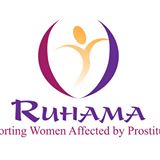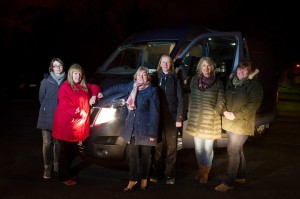
By Ann Marie Foley - 02 May, 2019

Sarah Benson, CEO, Ruhama
Women are more likely to report ‘sex buyers’ to the Gardaí since a new law was introduced in 2017. However, a leading NGO has stated that only three convictions have been secured.
Speaking about the Criminal Law (Sexual Offences) Act 2017, Sarah Benson, CEO, Ruhama said: “This has been very positive. We see cases where they are more likely now to report crimes against them to Gardaí without fear. We have also seen some good examples of individuals reporting crimes committed in indoor settings through pro-active Garda liaisons and this is to be encouraged. The Gardaí are given a strong signal by the law to ensure they take a victim-centred approach towards individuals in prostitution rather than a punitive one.”
She welcomed recent Garda action to target sex buyers in line with the law, but urged the government to do more to raise public awareness of the fact that it is now a crime to pay for sex.
Sarah Benson added that the law is intended “to ensure the public is aware that it is not okay to purchase sexual access to another person. You cannot simply bypass meaningful consent by paying money and thereby preying on someone’s financial need or desperately precarious situation.”
She was speaking at the launch of the 2018 Annual Report of Ruhama, Ireland’s NGO supporting women affected by prostitution and sex trafficking. This report states that 313 women of 40 nationalities were helped, and 122 of these from 29 countries were victims of trafficking. It also marks three decades of front-line work by Ruhama with those whom it describes as “some of the most vulnerable and marginalised women in Ireland”.
“We have supported literally thousands of women in very difficult situations over 30 years. The bad news is that some have not survived, and the sex trade is still alive and thriving in Ireland. Unfortunately our work is still so necessary and the demand for our services is only increasing,” said Sarah Benson.
 The report states that there have been substantial changes in the Irish sex trade over 30 years. Increased globalisation and changes in migration flows have resulted in a highly organised, transnational and criminalised sex trade that is thriving across Ireland.
The report states that there have been substantial changes in the Irish sex trade over 30 years. Increased globalisation and changes in migration flows have resulted in a highly organised, transnational and criminalised sex trade that is thriving across Ireland.
While there are still very vulnerable women in on-street prostitution, the majority that Ruhama meets are based indoors in brothels, apartments, hotels and massage parlours.
Something that has not changed over the decades is the violence in prostitution and the harm it causes.
Ruhama stated that the sex trade is still predominantly controlled by organised criminals and fueled by the demand for paid sex that is driven by 8 per cent of Irish men.
During 2018 Ruhama had 2,793 face-to-face contacts, 9,970 phone contacts and 13,666 SMS contacts (not including WhatsApp). The NGO offered 62 women street outreach support, 87 people education and development support and 57 people housing and social welfare support.

Ruhama outreach van
One of Ruhama’s initiatives is the outreach van, which visits Dublin’s red-light districts for up to four nights each week. The van is a safe and warm space where women can have a break from the street prostitution that they are involved in. The outreach team reported that these women have many challenges in life such as physical and health difficulties, debt, poverty, homelessness and addiction.
Some 60 per cent of the women reported dealing with drug and/or alcohol issues, using drugs ranging from crack to heroin to painkillers, pills and weed; 40 per cent reported that they were homeless; 42 per cent had experienced physical violence; and 42 per cent reported sexual violence (mainly at the hands of sex buyers).